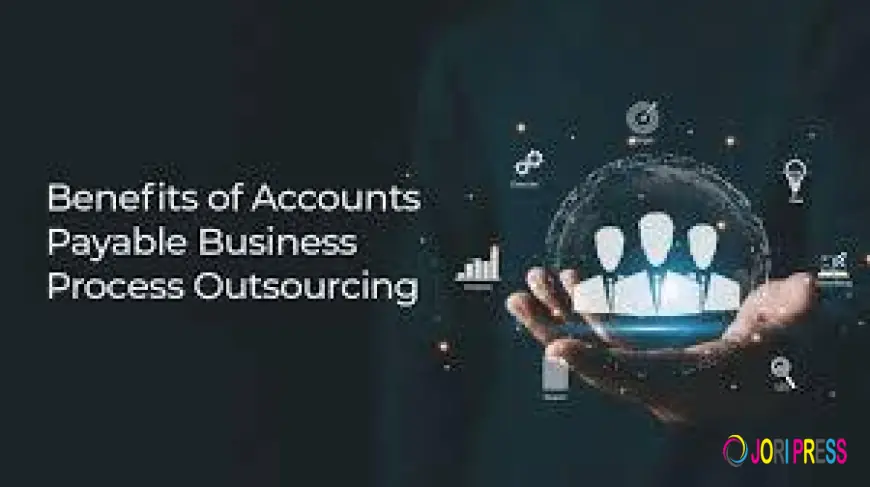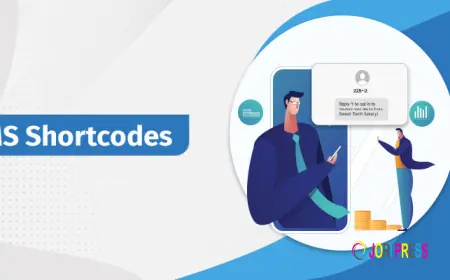How Accounts Payable Business Process Outsourcing Drives Financial Agility

In today’s highly competitive business environment, organizations are constantly seeking ways to streamline financial operations, reduce expenses, and focus more on strategic growth. One of the most effective strategies companies are adopting is Accounts Payable Business Process Outsourcing (AP BPO). By outsourcing the accounts payable function to specialized service providers, businesses can transform a traditionally manual and time-consuming process into a highly efficient, cost-saving operation.
This article explores how accounts payable business process outsourcing helps organizations cut costs, increase efficiency, and strengthen overall financial performance.
1. Eliminating Manual Processing Costs
Traditional accounts payable processes often involve manual data entry, paper invoices, and physical approvals—all of which are labor-intensive and prone to human error. These inefficiencies increase processing costs and delay payments.
With accounts payable business process outsourcing, companies can transition to automated digital workflows managed by skilled professionals. Outsourcing providers use advanced invoice management systems that capture, validate, and route invoices electronically. This drastically reduces manual intervention, lowers administrative costs, and frees internal staff from repetitive tasks, allowing them to focus on more strategic activities.
2. Reducing Labor and Overhead Expenses
Hiring and maintaining an in-house AP team involves significant costs—salaries, benefits, training, and infrastructure. As invoice volumes grow, companies often need to expand teams, which further increases overhead.
Outsourcing the accounts payable function provides immediate access to a trained, scalable workforce without the burden of recruitment or management. Service providers operate in cost-efficient environments, often offshore or nearshore, where labor costs are lower. This allows businesses to enjoy high-quality service at a fraction of the cost of maintaining an in-house team.
3. Leveraging Advanced Technology Without Capital Investment
Adopting the latest AP technologies—such as AI-powered invoice recognition, robotic process automation (RPA), and analytics—can be expensive. Licensing software, maintaining IT infrastructure, and ensuring cybersecurity compliance all require significant investment.
Through accounts payable business process outsourcing, companies gain access to cutting-edge tools and platforms without large upfront costs. The outsourcing partner absorbs the technology expenses and provides continuous upgrades as part of their service. This model enables organizations to benefit from innovation and automation without straining their budgets.
4. Minimizing Errors and Avoidable Penalties
Manual AP processes are prone to common errors such as duplicate payments, incorrect data entry, and missed deadlines. These mistakes can lead to financial losses, strained vendor relationships, and compliance risks.
Outsourced AP providers use automated validation checks and audit trails to ensure accuracy and compliance with corporate and tax regulations. By reducing errors and avoiding penalties or late fees, accounts payable business process outsourcing helps companies maintain financial accuracy and protect profitability.
5. Enhancing Vendor Relationships and Negotiation Power
Timely and accurate payments are critical for maintaining strong supplier relationships. Delays or errors in payments can result in lost discounts and disrupted supply chains.
With a streamlined and automated AP outsourcing process, invoices are processed faster, and payments are made on schedule. This reliability helps organizations qualify for early payment discounts and negotiate better terms with vendors. Improved vendor satisfaction often translates into more favorable pricing, contributing directly to cost savings.
6. Improving Cash Flow and Working Capital Management
Effective management of accounts payable directly impacts cash flow and liquidity. Businesses that lack real-time visibility into their payables may struggle to optimize payment cycles and forecast expenses accurately.
Outsourcing partners provide detailed reporting and analytics that give organizations a clear view of outstanding liabilities, payment timelines, and vendor trends. With these insights, finance leaders can make informed decisions about when to pay invoices, take advantage of discounts, and maintain optimal working capital levels—all contributing to reduced operational costs.
7. Ensuring Compliance and Risk Management
Regulatory compliance and financial audit readiness can be complex, especially for multinational companies operating under diverse tax and reporting standards. Managing compliance internally requires ongoing training and oversight, which adds to costs.
Accounts payable business process outsourcing providers maintain robust compliance frameworks that align with local and international regulations. They follow standardized controls, maintain detailed audit trails, and ensure adherence to company policies. This reduces the risk of non-compliance penalties while saving time and resources spent on internal audits.
8. Scalability Without Added Expense
Business growth or seasonal fluctuations often cause unpredictable changes in invoice volumes. Scaling internal AP operations to meet this demand can be expensive and time-consuming.
AP outsourcing providers offer flexible, scalable solutions that adjust seamlessly with business needs. Whether your company experiences a temporary increase in invoices or rapid expansion into new markets, outsourcing ensures consistent performance without additional hiring or infrastructure costs. This elasticity contributes to long-term cost efficiency.
9. Transforming Fixed Costs into Variable Costs
One of the most significant financial advantages of outsourcing accounts payable is the shift from fixed to variable cost structures. Maintaining an in-house AP department requires continuous investment in staff, technology, and office space—regardless of the number of invoices processed.
With accounts payable business process outsourcing, businesses pay only for the services they use. This pay-per-invoice or subscription-based model allows for predictable budgeting and greater financial flexibility, especially in uncertain economic conditions.
10. Focusing Internal Resources on Strategic Growth
By outsourcing transactional AP tasks, companies can redirect their internal finance teams toward higher-value initiatives such as financial analysis, forecasting, and strategy. The reduction in operational workload not only saves money but also enhances overall productivity.
This strategic realignment empowers organizations to focus on innovation, customer experience, and expansion—areas that drive revenue growth and long-term profitability.
Conclusion
Accounts Payable Business Process Outsourcing is more than just a cost-cutting measure—it’s a strategic transformation of financial operations. By eliminating manual inefficiencies, leveraging automation, and ensuring compliance, AP BPO enables organizations to achieve measurable cost reductions while improving accuracy and scalability.
Whether a business aims to streamline operations, gain real-time financial visibility, or strengthen supplier relationships, outsourcing accounts payable delivers tangible value. As companies continue to prioritize efficiency and agility, adopting accounts payable business process outsourcing will remain a critical step toward sustainable financial excellence.
What's Your Reaction?
 Like
0
Like
0
 Dislike
0
Dislike
0
 Love
0
Love
0
 Funny
0
Funny
0
 Angry
0
Angry
0
 Sad
0
Sad
0
 Wow
0
Wow
0


















































